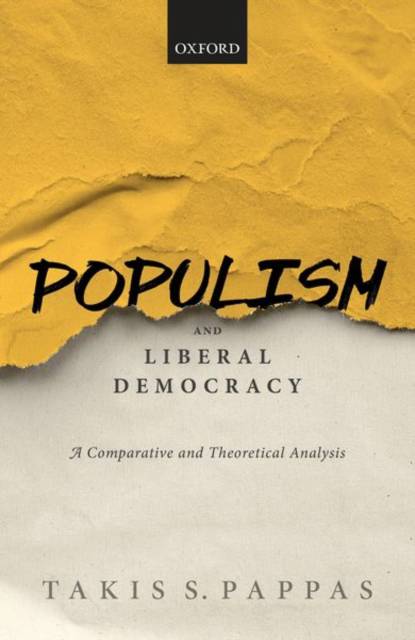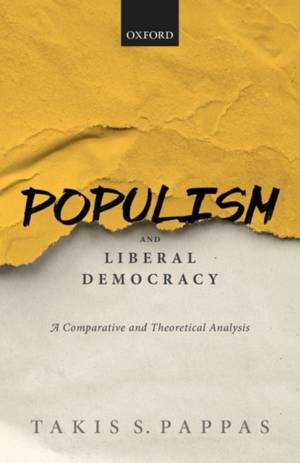
Door een staking bij bpost kan je online bestelling op dit moment iets langer onderweg zijn dan voorzien. Dringend iets nodig? Onze winkels ontvangen jou met open armen!
- Afhalen na 1 uur in een winkel met voorraad
- Gratis thuislevering in België vanaf € 30
- Ruim aanbod met 7 miljoen producten
Door een staking bij bpost kan je online bestelling op dit moment iets langer onderweg zijn dan voorzien. Dringend iets nodig? Onze winkels ontvangen jou met open armen!
- Afhalen na 1 uur in een winkel met voorraad
- Gratis thuislevering in België vanaf € 30
- Ruim aanbod met 7 miljoen producten
Zoeken
€ 209,45
+ 418 punten
Omschrijving
Populism and Liberal Democracy is the first book to offer a comprehensive theory about populism during both its emergence and consolidation phases in three geographical regions: Europe, Latin America and the United States. Based on the detailed comparison of all significant cases of populist governments (including Argentina, Greece, Peru, Italy, Venezuela, Ecuador, Hungary, and the U.S.) and two cases of populist failure (Spain and Brazil), each of the book's seven chapters addresses a specific question: What is populism? How to distinguish populists from non-populists? What causes populism? How and where does populism thrive? How do populists govern? Who is the populist voter? How does populism endanger democracy? If rising populism is a threat to liberal democratic politics, as this book clearly shows, it is only by answering the questions it posits that populism may be resisted successfully.
Alleen bij Standaard Boekhandel
+ 418 punten op je klantenkaart van Standaard Boekhandel
Beoordelingen
We publiceren alleen reviews die voldoen aan de voorwaarden voor reviews. Bekijk onze voorwaarden voor reviews.












